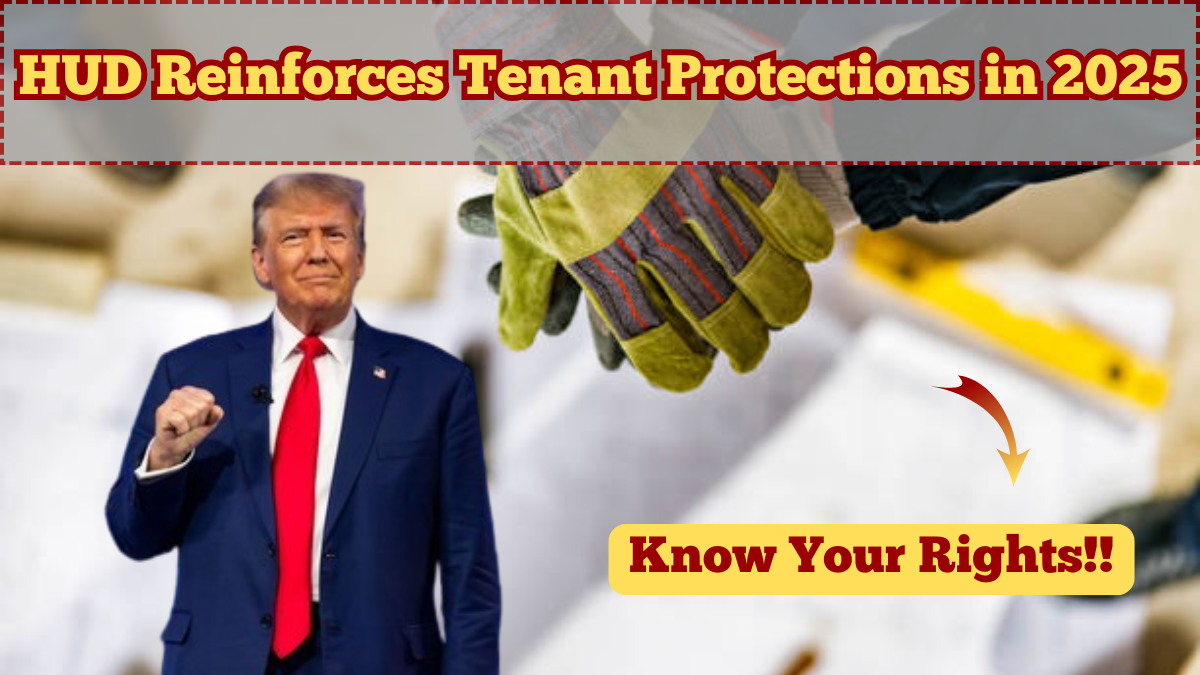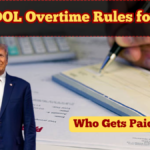As we move into 2025, the Department of Housing and Urban Development (HUD) is strengthening protections for tenants across the U.S. If you’re renting a home or apartment, it’s essential to know your rights. With the rising costs of living and increased rental prices, HUD’s role in enforcing tenant protection laws has never been more crucial.
For tenants, these updates provide significant relief by limiting rent increases and offering additional protection against unfair evictions. Here’s everything you need to know about the new HUD law changes in 2025 and how they impact your living situation.

What Are the Key Changes to Tenant Rights?
The HUD law updates for 2025 focus primarily on two areas: rent increases and eviction protections. These changes will help stabilize housing costs for renters, particularly in areas with high demand and soaring rents.
1. Rent Increase Limits
Under the new tenant protection rules, rent increase limits are now being enforced in more regions. Landlords cannot raise rent at will—there are now guidelines in place to ensure increases are reasonable. The key features of the updated rules are:
-
Rent increases must be justified by the market rate in the area.
-
Tenant protection laws will ensure that any increase is within a reasonable percentage of the current rent. This prevents sudden and excessive rent hikes.
-
Rent control rules apply in many high-demand areas, particularly in cities and urban neighborhoods with a history of rapidly increasing rents.
These changes are expected to bring stability to renters, making it easier to budget for housing costs without the fear of sudden and unreasonably high rent hikes.
2. Eviction Rules Strengthened
In addition to rent increase limits, HUD is tightening eviction rules to prevent wrongful evictions. Here are the highlights:
-
Eviction notice periods have been extended in many states. Landlords now must provide a longer notice period before initiating eviction proceedings.
-
Tenants have more time to dispute an eviction in court, ensuring they are not unfairly removed from their homes without due process.
-
COVID-19 protections: For tenants still facing financial difficulties due to the pandemic, HUD is continuing to enforce temporary protections to prevent eviction during hardship periods.
These updates mean tenants are now better protected from being kicked out of their homes unfairly, and landlords are being held accountable for following the correct procedures.
How Do These Changes Affect Tenants?
The HUD law changes in 2025 offer substantial benefits to tenants, especially those who live in areas with volatile housing markets. Here’s how they might impact you:
-
More predictable rent: With rent increase limits in place, tenants can better plan their finances, knowing that their rent won’t suddenly jump by 30% or more.
-
Protection from unfair eviction: The updated eviction rules ensure that landlords cannot just evict tenants without proper notice or justification. This gives renters more stability in their housing situation.
-
Help for low-income tenants: Low-income households will benefit from additional safeguards, ensuring they are not unfairly priced out of their homes by unreasonable rent hikes or sudden evictions.
What Should Tenants Do to Protect Their Rights?
While tenant protection laws are strengthening, it’s also essential for renters to be proactive about protecting their rights. Here are some steps to take:
-
Know your lease agreement: Understand the terms of your lease, including clauses related to rent increases and eviction.
-
Keep records: Maintain a log of all communications with your landlord, especially regarding rent payments and notices. This will help if there’s ever a dispute.
-
Understand local laws: While HUD law applies nationally, local and state laws may provide additional protections, so make sure to check the specifics of your area.
By staying informed and knowing your rights, you’ll be in a much better position to protect yourself if you encounter issues with your landlord.
What Happens If My Rights Are Violated?
If you feel your tenant protection rights are being violated, you have several options:
-
File a complaint with HUD: If your landlord is violating eviction rules or unfairly raising your rent, you can file a complaint with HUD or your state’s housing agency.
-
Seek legal counsel: Many cities have legal aid organizations that provide free or low-cost assistance to tenants facing eviction or unfair treatment.
-
Join a tenant union: Many communities have tenant unions or advocacy groups that offer resources and support for renters facing challenges.
HUD’s 2025 rules are designed to make it easier for tenants to fight back against unfair practices and ensure that landlords adhere to the law.
FAQs
How will rent increase limits affect me as a tenant?
The new rent increase limits will ensure that rent hikes are reasonable and reflect the current market conditions. This means sudden, huge increases are less likely.
What is the eviction rule change in 2025?
The eviction rules have been strengthened, offering tenants more time and a longer notice period before being evicted. You will also have more time to dispute an eviction in court.
How can I protect myself as a tenant in 2025?
Stay informed about your rights, maintain records of all communications with your landlord, and understand your local housing laws. This will help you in case of disputes.
Are HUD tenant protection laws the same everywhere?
No. While HUD sets national guidelines, individual states or cities may have additional tenant protection laws that offer even more safeguards for renters.
What should I do if my landlord is violating the new rules?
You can file a complaint with HUD or seek legal counsel to protect your rights. Many communities also have tenant unions or advocacy groups to assist in such cases.
Click here to know more.
Aanchal is a passionate writer with a keen interest in storytelling, content creation, and creative expression. She enjoys exploring diverse topics and crafting engaging narratives that captivate readers.



